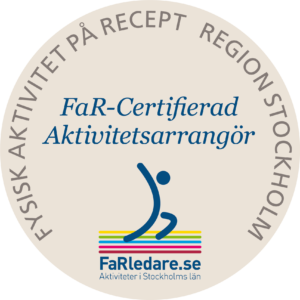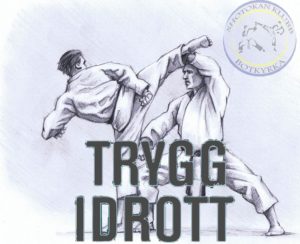
Gichin Funakoshi satte upp en kalligrafibild med 20 visdomar om karate i sin dojo (år 1890), vilket kallas NiJu-kun (=20 regler), som är grunden för den fostran och respekt som sprids genom karate till skillnad från många andra kampkonster.
- Karate-do börjar med en bugning och avslutas med en bugning.
Karate-do begins and ends with bowing.
一、空手道は礼に始まり礼に終る事を忘るな
Hitotsu, karate-dō wa rei ni hajimari rei ni owaru koto o wasuruna
- Man attackerar aldrig först i Karate.
There is no first strike in karate.
一、空手に先手なし
Hitotsu, karate ni sente nashi
- Karate utövaren tar rättvisans sida.
Karate stands on the side of justice.
一、空手は義の補け
Hitotsu, karate wa, gi no tasuke
- Lär dig först känna dig själv, då kan du förstå andra.
First know yourself, then know others.
一、先づ自己を知れ而して他を知れ
Hitotsu, mazu jiko o shire, shikashite ta o shire
- Själens utveckling är viktigast inför teknisk kunskap.
Mentality over technique.
一、技術より心術
Hitotsu, gijutsu yori shinjutsu
- Hjärtat måste frigöras.
The heart must be set free.
一、心は放たん事を要す
Hitotsu, kokoro wa hanatan koto o yōsu
- Motgång kommer från slarv.
Calamity springs from carelessness.
一、禍は懈怠に生ず
Hitotsu, wazawai wa ketai ni shōzu
- Karate är inte endast dojo träning.
Karate goes beyond the dojo.
一、道場のみの空手と思ふな
Hitotsu, dōjō nomi no karate to omou na
- Karate är ett livslångt lärande.
Karate is a lifelong pursuit.
一、空手の修業は一生である
Hitotsu, karate no shūgyō wa isshō de aru
- Placera Karaten i allt du gör. Däri ligger dess skönhet.
Apply the way of karate to all things. Therein lies its beauty.
一、凡ゆるものを空手化せよ其処に妙味あり
Hitotsu, arayuru mono o karate kaseyo; soko ni myōmi ari
- Karate är som hett vatten. Om det inte kontinuerligt får värme blir det åter kallt.
Karate is like boiling water; without heat, it gets cold again.
一、空手は湯の如し絶えず熱度を与えざれば元の水に還る
Hitotsu, karate wa yu no gotoshi, taezu netsu o ataezareba moto no mizu ni kaeru
- Tänk ej att du måste vinna. Tänk istället att du ej ska förlora.
Do not think of winning. Think, rather, of not losing.
一、勝つ考は持つな負けぬ考は必要
Hitotsu, katsu kangae wa motsuna; makenu kangae wa hitsuyō
- Rör dig i enlighet med din motståndare.
Make adjustments according to your opponent.
一、敵に因って轉化せよ
Hitotsu, teki ni yotte tenka seyo
- Seger beror på förmågan att hantera svaghet och styrka.
The outcome of a battle depends on how one handles emptiness and fullness (weakness and strength).
一、戦は虚実の操縦如何に在り
Hitotsu, tatakai wa kyojitsu no sōjū ikan ni ari
- Betrakta händer och ben som du skulle betrakta vassa svärd.
Think of hands and feet as swords.
一、人の手足を剣と思へ
Hitotsu, hito no teashi o ken to omoe
- När du lämnar ditt hem, tänk att miljoner motståndare väntar på dig.
When you step beyond your own gate, you face a million enemies.
一、男子門を出づれば百万の敵あり
Hitotsu, danshi mon o izureba hyakuman no teki ari
- Låga ställningar är för nybörjare; senare står man naturligt.
Formal stances are for beginners; later, one stands naturally.
一、構は初心者に後は自然体
Hitotsu, kamae wa shoshinsha ni ato wa shizentai
- Att utföra en korrekt Kata är en sak, riktig fight är något annat.
Perform prescribed sets of techniques exactly; actual combat is another matter.
一、形は正しく実戦は別物
Hitotsu, kata wa tadashiku, jissen wa betsumono
- Glöm inte styrka och svaghet i teknikens kraft, kroppens flexibilitet och den relativa hastigheten för varje teknik.
Do not forget the employment of withdrawal of power, the extension or contraction of the body, the swift or leisurely application of technique.
一、力の強弱体の伸縮技の緩急を忘るな
Hitotsu, chikara no kyōjaku, karada no shinshuku, waza no kankyū o wasuruna
- Var ständigt uppmärksam, flitig och påhittig i din strävan efter (karate) vägen.
Be constantly mindful, diligent, and resourceful, in your pursuit of the Way.
一、常に思念工夫せよ
Hitotsu, tsune ni shinen kufū seyo
Reglerna är inte numrerade eller ordnade; var och en börjar med hitotsu som betyder ”ett” eller ”först” för att visa att varje regel har samma betydelsenivå som de andra.
DETALJERAD FÖRKLARING (Engelska)
1. Never forget: karate begins with rei and ends with rei
Rei means courtesy or respect and is represented in karate by bowing.
We bow many times at each karate lesson: at the beginning and at the end of each karate lesson, when receiving personal instructions, when partnering up, when using training equipment, and before and after a sparring session with your partner.
We do this to show respect to our instructors, partners, training equipment, and our place of training.
And this respectful attitude should not be confined to the dojo floor. As you train and make karate a part of your life, this respectful manner should become part of your character.
Life is short and the world is small. You will surely brighten someone’s day up and yours too with your courtesy and respect.
It takes restrain to show respect to someone who doesn’t deserve it, but if you are disrespectful to such a person, you stoop down to their level, and that’s useless.
You might meet someone who you don’t think deserves your respect, but if you are being disrespectful to that person, you’ll stoop down to their level.
The arrogant, the totally selfish, the foul-mouth, the homeless and the alcoholic may not have had the kind of upbringing as you had. Show empathy and treat them with respect as you would with more fortunate people.
2. There is no first attack in karate
Karate is the art of self-defense, first and foremost. We should only use what we learn in karate to defend ourselves and not to provoke conflicts and seek violent encounters.
3. Karate supports righteousness
While you shouldn’t use your karate skills to cause conflicts, if conflicts arise, you should use what you know to the best of your ability to defend, protect and support what you believe is right.
4. First understand yourself, then understand others
This would make many immediately think of Sun Tzu’s saying “Know yourself, know your opponent, hundred battles, hundred victories“.
In the context of karate the right interpretation is that you need to understand your strengths and weaknesses and train accordingly. For example, if you are a small person who is not very flexible with short legs, high kicks is unlikely to do a lot of damages. So train with an analytical mind and find out what you are good at and what you are not good at. The next part is to understand your opponent or simply your training partner and use appropriate strategies.
5. The art of developing the mind is more important than the art of applying technique
Training in karate involves the development of mind, body, and spirit and Gichin Funakoshi’s view is the development of the mind is far more important than the others.
In karate, most of the time you learn to block, punch and kick and there is not much time where your instructor would stop to talk about developing the mind. But that would come about gradually and subtly through years of training. You develop a strong mind, resilience, confidence, and a sense of justice by turning up to train no matter what, pushing through and mastering a difficult technique or a kata, having an open mind and continually seeking to better yourself, being there and helping your training partner and supporting your karate family.
6. The mind needs to be free
The mind needs to be free of judgment, your own knowledge, worries, plans, and anticipations so that you can be readily open to new ideas, instructions, situations to learn, adapt and deal with them accordingly.
7. Trouble is born of negligence
If you are careless in training, problems will ensue. Every single karate technique when mastered can be deadly and if you are not careful, you can easily cause serious injury to yourself and your training partner.
8. Do not think karate belongs only in the dojo
This will come unconsciously to you as you travel along your karate journey. If you put the effort into your training and try to learn as much as you can from the art, you will find that karate influences you in and out of the dojo. You will be more disciplined, more confident, and more respectful and act with integrity.
9. Karate training requires a lifetime
People learn karate for different reasons, for physical fitness, for self-defense, or simply for being part of a community. But for those who love karate and the many things it has to offer, training in karate is a lifelong pursuit.
There is so much to learn from karate and you will be only scratching the surface even if you spend your whole life studying the art.
10. Transform everything into karate; therein lies its exquisiteness
You can apply many things that you learn in karate to different aspects of your life. For example, being respectful to people you meet in daily life, having an open mind and listening to your partner when you have an argument or applying what you learn in sparring strategies to solving problems at home and at work
11. Genuine karate is like hot water; it cools down if you do not keep on heating it
This one is obvious. If you want to continually improve your karate, you need to practice it regularly, there is no other way around.
Both physical and mental fitness can’t be stored. To retain it, you need to continually work on it and challenge yourself.
12. Do not think of winning; you must think of not losing
If you are in a tournament match, you may not know what your opponent is like. He or she could be far better than you technically or could be a definite underdog. If you have the mindset that you must win, you will put pressure on yourself, become tense, and are less likely to be ready to react to the fight as best as you can.
You shouldn’t think about losing either before a fight. Thinking that you’d lose means you’ve already surrendered to your opponent, your spirit is down, you are unlikely to actively defend yourself or deploy techniques and strategies to overcome your opponent.
Instead, don’t think about losing and winning and fight to the best of your ability. If you lose against a better opponent, have no regret. If you win against a poor opponent, it’s fair.
13. Transform yourself according to the opponent
You need to remain flexible and adapt to the individual opponents.
14. The outcome of the fight depends on one’s control
A more clear translation is “The outcome of a battle depends on how one handles emptiness and fullness (weakness and strength)” which doesn’t need interpretation.
15. Imagine one’s arms and legs as swords
As karate is the art of empty-hand fighting, you need to use your whole body as a weapon, not just arms and legs. And they all can be deadly weapons at that.
16. Once you leave the shelter of home, there are a million enemies
Gichin Funakoshi lived in a different time and era but this still can apply today.
We face problems within ourselves and within our own homes.
As we venture further and further away, we face more problems and have more complex issues to deal with. We need to be aware of this fact and aim to maintain a zanshin mindset (a state of relaxed alertness).
And karate teaches us not to invite problems, not to incite conflicts but we should always be ready when problems or enemies come our way.
17. Postures are for the beginner; later they are natural positions
There are many stances in karate (zenkutsu dachi, kiba dachi etc).
They are created to teach people katas because it is easier for instructors to refer to posture names one assumes when perform varying techniques in these katas rather than having to repeatedly describe the specifics of these positions.
These stances are only moment-in-time postures because in an actual fight, you would be moving fluidly and there would be no static stances.
By practicing katas over and over again, these stances will eventually become natural positions.
18. Do the kata correctly; the real fight is a different matter
The first and second statements of this precept seem contradictory to me.
My understanding is that kata is the essence of karate. By performing karate katas over and over again while visualizing fighting an actual opponent, you will develop unconscious reflexes and be able to use them in real fights naturally and effectively. Your kata practice will be reflected in your actual fighting techniques. Accordingly, kata and real fights should be closely connected, otherwise, what is the point of practicing katas.
Do the kata correctly, yes definitely, but experienced karatekas should be able to apply what they learn in kata in real fights.
19. Do not forget control of the dynamics of power, the elasticity of the body and the speed of the technique
This is as true in karate as in any other martial arts. One needs to learn to use a combination of soft and hard power, slow and fast techniques, and the extension and contraction of the muscles.
20. Always be good at the application of everything that you have learned
Another translation is “Be constantly mindful, diligent, and resourceful, in your pursuit of the Way” which has quite a substantial difference in meaning.
We are all different with different strengths and weaknesses and different circumstances. I think we should look deep into ourselves, find the best way to live the one and the only life we have and figure out our own karate journey. For some, their karate journey could be linear, for others it could be winding and bumpy, but, like other aspects of our lives, if we remain persistent, diligent and creative, we will succeed.






